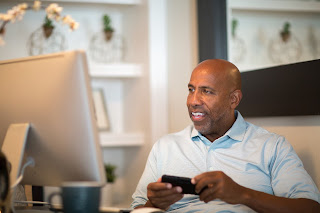Factors That Can Potentially Hinder Your Retirement Decision
Larry Gard, Ph.D.
The pandemic has upended the retirement trajectory of many business owners. Dealing with more uncertainty than ever, scores have been faced with the decision to close down, sell, or try to keep their business afloat.
While Covid-19 has introduced additional variables into the exit planning equation, business owners shouldn’t lose sight of core considerations that have always existed: Are you remaining in your business long after you should because of your attachment to your role? Do you continue to work, by default and perhaps against your own interest, because you’re uncomfortable with the alternative?
By staying too long you may be putting your business at risk. For example, even if you have been grooming a successor, that individual may eventually leave if they don’t believe a promotion is likely any time soon. The same goes for other talented employees who will begin to wonder whether the company has a succession plan in place. If you’re ambivalent about retiring it may cause you to overlook exit opportunities. The economy isn’t going to wait until you’re emotionally ready to leave, and if you miss a seller’s market (or even just one solid buyer) that can have consequences.
I understand having a strong attachment to one’s business. As a psychologist, a good portion of my identity stems from my profession. However, it’s important to consider what gives us satisfaction and purpose beyond work. Unfortunately, many business owners have not yet discovered compelling alternatives to working full time. Here are few possible reasons why:
- They didn’t have sufficient time to develop meaningful, truly gratifying avocations. The reality is that some people were fully immersed in their business or career, either by choice or necessity, leaving the little opportunity to cultivate other interests.
- They never had a role model. Many people grew up with parents who worked until they could no longer do so, and consequently they had no role model of someone who enjoyed an active and rewarding retirement.
- They feel uncomfortable not working. Baby boomers tend to have a strong work ethic. A willingness put in long hours and get the job done is admirable and can serve us well. Unfortunately, some people overuse this strength to the point that they feel ill at ease when not working.
These are significant factors that can fuel a reluctance to retire, but with some introspection and perhaps a conversation with a trusted advisor or counselor you can work around them. You deserve to approach the retirement decision in the most clear-eyed manner possible without letting these emotional factors affect your judgement.
Larry Gard is the author of Done with Work: A dozen perspectives on the decision to retire. His goal is to help clients leave work on high note and transition smoothly to a compelling next chapter.

Comments
Post a Comment
Thank you for your input. Comments will be moderated before they are posted.